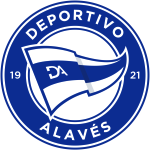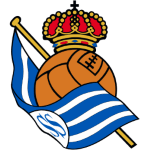Barca’s Fiercest Rivalry Isn’t Real Madrid — It’s Espanyol
ToC

Football is not just a battle between players on the pitch — it’s also a war between supports off it.
At its core, football has always been a sport of the working class, bringing communities together while just as easily dividing their loyalties.
Location
Before the rise of the internet and modern transportation, supports rarely had direct confrontations with supporters of clubs from other cities. But local rivalries were a different story. In many cities, rival stadiums are just blocks apart, and supports cross paths on a daily basis.

This constant proximity fuels tension. The battle for local bragging rights isn’t just fought on the pitch, but on the school, in neighborhoods, and even within families.
In the quest to establish dominance over the city, these rivalries often spill into fierce — and sometimes explosive — confrontations between supporters.
Culture
FC Barcelona has long symbolized Catalan pride and the spirit of independence.
🔴Red, 🔵blue, and 🟡yellow, the Barca’s identity mirrors the colors of the Catalan flag.

At Camp Nou, when the match clock strikes 17:14, chants often erupt — a powerful tribute to the year 1714, when Catalonia fell in the War of Spanish Succession. For many local supports, Barca is more than a football club.
RCD Espanyol — whose Catalan name translates to “Royal Spanish” in English — carries a contrasting identity.

It was the first club in Spain founded exclusively by 🇪🇸Spanish of the game.
And the word 👑“Royal” itself reflects a certain alignment with the central Spanish authority.
As a result, the Catalan derby between Barca and Espanyol is not just a football rivalry — it is an extension of cultural and political tension, a clash between two opposing visions of identity within the same city.
Competitive
FC Barcelona was founded in 1899, followed by Espanyol a year later.
Both clubs initially competed in the Campionat de Catalunya, and judging by Espanyol’s history honours — including nine titles in that competition — they were fairly competitive during those early years.
But I am sorry there’s limited information available on Espanyol in the Campionat de Catalunya.

Things changed drastically in the La Liga era. In nearly 70 years of league competition, Espanyol has finished above Barcelona only three times.
2022/23 season, Espanyol lost 2–4 to Barca and were relegated while Barca secured the league title with that same win — celebrating triumphantly right inside Espanyol’s home stadium.

Conclusion
Despite the stark ideological and cultural contrasts, the barcelona derby has historically meant more to Espanyol fans than to those of Barcelona — largely due to the disparity in ambitions between the two clubs. For Barca, their true arch-rivals have always been Real Madrid.
FAQ
How many times has Barcelona won La Liga Titles?
How many times has Barcelona won La Liga Titles? Barcelona has won La Liga 27 times.
Where is the FC Barcelona?
Where is the FC Barcelona? FC Barcelona’s home stadium, Camp Nou, is located in Barcelona, Catalonia, Spain.
Where is the FC Barcelona?
Where is the FC Barcelona? FC Barcelona’s home stadium, Camp Nou, is located in Barcelona, Catalonia, Spain.
How many times has Barcelona won La Liga Titles?
How many times has Barcelona won La Liga Titles? Barcelona has won La Liga 27 times.
How many years has Messi played for Barcelona?
How many years has Messi played for Barcelona? Lionel Messi’s 21-Year Career at Barcelona Lionel Messi’s journey at Barcelona spans 21 years, with numerous milestones and records that have shaped both his career and the club’s legacy. ⚽2000, July 1: At the age of 13 years and 7 days, Messi joined Barcelona’s famed La Masia academy, moving from Argentine club Newell’s Old Boys U19 team. ⚽2003, November 16: Messi made his debut for Barcelona in a friendly match against FC Porto.











































